Program Director
 Ara Osterweil
Ara Osterweil
Ara Osterweil is an Associate Professor in the English department who specializes in postwar cinema and art. Her research focuses on the representation of sexuality in American and world cinema, avant-garde cinema, the sixties, and queer and women filmmakers. A frequent contributor to Artforum and Film Quarterly, Osterweil has also published essays in journals such as Camera Obscura, Millennium Film Journal, Framework, C Magazine, The Brooklyn Rail, and Little Joe.
Osterweil's first book, Flesh Cinema: The Corporeal Turn in American Avant-Garde Film (Manchester University Press, 2014) examines explicit representations of the body in experimental cinema of the 1960s and 70s. She is currently working on another book entitled The Pedophilic Imagination: A History of American Film, which examines the central roles that the representation of erotic children and monstrous pedophiles has played in the development of Hollywood cinema.
In addition to offering historical courses on Revolutionary Cinema, Women Filmmakers, American Film of the 1960s, Postwar Italian Cinema, Race in American Film, and Avant-Garde Cinema, Osterweil offers classes on major figures such as Rainer Werner Fassbinder, Andy Warhol, Jean-Luc Godard, and Chantal Akerman. She also teaches two creative seminars, Image/ Sound/Text, and Experimental Autobiography and Portraiture.
In addition to being a scholar and writer, Osterweil is also an abstract painter. Both her writing and her painting can be viewed on her website: www.araosterweil.com
Committee Members
- Ara Osterweil, English
- Alain Farah, Départment de langue et littérature françaises
- Yuriko Furuhata, East Asian Studies
- Lisa Stevenson, Anthropology
- Ipek Türeli, Architecture
Faculty Members
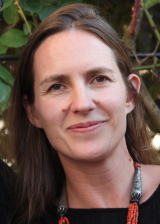 Diana Allan
Diana Allan
Diana Allan is Assistant Professor in the Department of Anthropology and the Institute for the Study of International Development. She is a filmmaker and anthropologist who received her training at Harvard’s Sensory Ethnography Lab, and is the creator of two grassroots media collectives in Lebanon, the Nakba Archive and Lens on Lebanon. She was a recipient of a 2013 Guggenheim Fellowship in film and anthropology, and her ethnographic films Chatila, Beirut (2001), Still Life (2007), Nakba Archive Excerpts (2008), Fire Under Ash (2009), and Terrace of the Sea (2010), have been screened in international film festivals and as gallery installations. Her recent ethnography, Refugees of the Revolution: Experiences of Palestinian Exile (Stanford University Press, 2014) won the 2014 MEMO Palestine academic book award and the 2015 Middle East Section Award at the American Anthropological Association. Her current research–both written and filmic–explores the politics of Beirut’s informal economy.
 Eugenio Bolongaro
Eugenio Bolongaro
Eugenio Bolongaro is Associate Professor in the Department of Italian Studies. His main interests are contemporary Italian prose fiction, Italian film, and literary theory. His book, Italo Calvino and the Compass of Literature, was published by the University of Toronto Press in 2003. He has published several articles on Italian literature and cinema in British, American and Italian journals. His current research focuses on the Italian “young cannibals” and ethics in literary criticism, as well as on the representation of homosexual desire in Luchino Visconti’s films.
Vanessa Ceia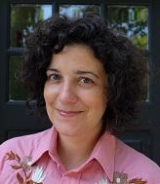
Vanessa Ceia is an Assistant Professor of Hispanic Studies and Digital Humanities in the Department of Languages, Literatures, and Cultures whose research focuses on representations of the body and subcultural and gender identities in Spanish and Portuguese cinemas and digital media. Ceia has published on the early underground cinema of Pedro Almodóvar and experimental films of Iván Zulueta, and is currently writing a book that examines representations of the body in mainstream and underground cinema, periodicals, and literary texts from and about the Movida madrileña, a hedonistic and punk-inspired cultural renaissance that emerged in Madrid after death of Spanish dictator Francisco Franco in 1975. Her book includes an accompanying digital humanities project that maps cultural hubs and creative networks in the Madrid of the Movida: mappingthemovida.com
At McGill, Ceia teaches courses on Spanish and European cinemas, Pedro Almodóvar, queer Spanish cultural studies, spatial humanities, and digital culture. Ceia is also a member of the Gender, Sexuality, Feminist, and Social Justice Studies Advisory Committee and a core member of the Digital Humanities program.
Before joining McGill, Vanessa was a Postdoctoral Fellow in Romance Languages and Literatures at Harvard University and Visiting Scholar at Brown University. She earned her PhD from New York University.
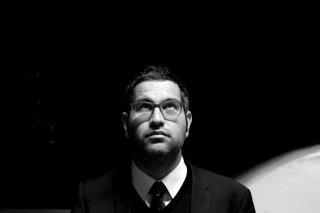 Alain Farah
Alain Farah
Alain Farah has published a book of poems, Quelque chose se détache du port, which shortlised for the Prix Émile-Nelligan. He has also published the novels Matamore no 29 and Pourquoi Bologne, a finalist for the Governor General's Literary Award. He teaches contemporary French literature and creative writing.
 Yuriko Furuhata
Yuriko Furuhata
Yuriko Furuhata is Associate Professor and William Dawson Scholar of Cinema and Media History in the Department of East Asian Studies at McGill University. Her first book, Cinema of Actuality: Japanese Avant-Garde Filmmaking in the Season of Image Politics (Duke University Press, 2013), won the Best First Book Award from the Society of Cinema and Media Studies. Her second book, Climatic Media: Transpacific Experiments in Atmospheric Control (Duke University Press, 2022) explores the geopolitical conditions underpinning environmental art, weather control, digital computing, and cybernetic architecture in Japan and the United States. Climatic Media won the 2022 Atmospheric Science Librarians International (ASLI) CHOICE Award in the category of interdisciplinary monograph. She is currently completing a book, titled Visual Grammars of Deep Time: Archipelagic Archives of the Anthropocene (under contract, Duke University Press), which examines scientific atlases, photographs, and films of fossils, clouds, snow crystals, and corals in relation to the settler colonial histories of geosciences in Japan, the Pacific, and North America. Her articles have appeared in a wide range of journals, including Grey Room, Representations, Public Culture, Media+Environment, and Screen, and edited collections such as Screen Genealogies (2019), Media Theory in Japan (2017), Animating Film Theory (2014), among others.
 Amanda Holmes
Amanda Holmes
Amanda Holmes is Associate Professor of Hispanic Studies. She studies urban and spatial representation in contemporary Latin American culture. Her interests in film include New Argentine Cinema, landscape and film, and transatlantic cinema. She edited the volume, “Crossing Borders and Identities in Hispanic Cinema” for the Revista Canadiense de Estudios Hispánicos 37.1 (2012), and she is currently finishing a book-length manuscript on architecture in contemporary Argentine cinema.
 Bobby Benedicto
Bobby Benedicto
Bobby Benedicto is an Assistant Professor in the Department of Art History and Communication Studies and the Institute for Gender, Sexuality, and Feminist Studies. His research and teaching focus on the intersections of queer theory, critical race theory, death studies, urban studies, and film and media studies. His first book, Under Bright Lights: Gay Manila and the Global Scene (University of Minnesota Press, 2014), was a finalist for the Lambda Literary Award for LGBT Studies and received an Honorable Mention for the Ruth Benedict Prize for Queer Anthropology. His other writing has appeared in journals such as GLQ, Social Text, and Antipode, among others. His current book project, Fatal Sex, examines the aesthetics of death in twenty-first century queer art and media. He is also currently working on a SSHRC-funded project on the rise of authoritarian nostalgia in the Philippines and an FRQSC-funded project on dictatorship architecture and queer embodiment and performance.
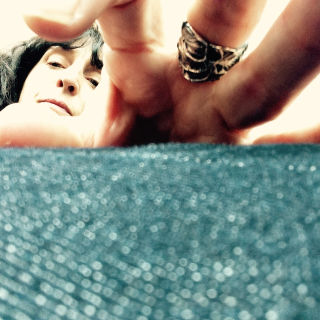 Giuliana Minghelli
Giuliana Minghelli
Giuliana Minghelli joined McGill in 2014 as an Associate Professor of Italian in the Department of Languages, Literatures and Cultures. Her research focuses on questions of history, ethics and memory at the intersection of literature, cinema and visual culture. She is the author of In the Shadow of the Mammoth: Italo Svevo and the Emergence of Modernism (University of Toronto, 2003) and Cinema Year Zero: Landscape and Memory in Post-Fascist Italian Film (Routledge, 2013). She edited The Modern Image: Intersections of Photography, Literature and Cinema in Italian Culture (2009) and co-edited with Sally Hill, Stillness in Motion: Italy, Photography and the Meanings of Modernity (Toronto UP, 2015). In 2014, she curated an exhibit on Italian colonialism at Harvard University: In Africa it is Another Story. Looking Back at Italian Colonialism, now transformed in an online digital exhibition. Currently, she is working on a research project on shame in post-war culture. Looking at the corporeality, aesthetics and politics of this emotion in lived landscapes, popular culture, and the still and moving image, the project explores the connections between post-war silence and contemporary historical imagination. Beside teaching courses on Italian cinema, popular culture and major auteurs like Michelangelo Antonioni, Federico Fellini and Pier Paolo Pasolini, she taught seminars on modernism and visual media; landscape art and theory; cinema and photography; the avant-garde.
 Derek Nystrom
Derek Nystrom
Derek Nystrom is an Associate Professor of English who teaches in the Cultural Studies stream. He has taught courses on: 1970s and 1980s U.S. cinema; film and television theory; the U.S. war film as a genre; Robert Altman; Todd Haynes; Hollywood cinema during the Great Depression; the cinema of precarity; Marxist literary and cultural theory; class and labour in post-WWII U.S. film and literature; and introductions to film studies and cultural studies.
His essays have appeared in Cinema Journal, Postmodern Culture, Radical History Review, the Iowa Journal of Cultural Studies, and elsewhere. His book, Hard Hats, Rednecks, and Macho Men: Class in 1970s American Cinema (New York: Oxford UP, 2009), was named as a finalist for the 2010 Richard Wall Memorial Award by the Theatre Library Association. His current book project is on 1930s classical Hollywood cinema and the question of precarity.
Ned Schantz
 Ned Schantz is an Associate Professor in the Department of English, where he teaches courses such as Introduction to Film Studies, Horror Film, Hitchcock, and Film of the Forties. He is the author of Gossip, Letters, Phones: The Scandal of Female Networks in Film and Literature (Oxford 2008), and his essays include “The Texas Chainsaw Massacre Begins.” (co-authored with J. Shea). In American Twilight: The Cinema of Tobe Hooper. Eds. Kris Woofter and Will Dodson. Austin: U of Texas P, 2021, 217-228; “Surprised by La Jetée,” Senses of Cinema 76 (September 2015); and "Melodramatic Reenactment and the Ghosts of Grizzly Man," Criticism Volume 55, Number 4 (Fall 2013). He has recently finished a book on the problem of hospitality in Hitchcock.
Ned Schantz is an Associate Professor in the Department of English, where he teaches courses such as Introduction to Film Studies, Horror Film, Hitchcock, and Film of the Forties. He is the author of Gossip, Letters, Phones: The Scandal of Female Networks in Film and Literature (Oxford 2008), and his essays include “The Texas Chainsaw Massacre Begins.” (co-authored with J. Shea). In American Twilight: The Cinema of Tobe Hooper. Eds. Kris Woofter and Will Dodson. Austin: U of Texas P, 2021, 217-228; “Surprised by La Jetée,” Senses of Cinema 76 (September 2015); and "Melodramatic Reenactment and the Ghosts of Grizzly Man," Criticism Volume 55, Number 4 (Fall 2013). He has recently finished a book on the problem of hospitality in Hitchcock.
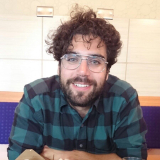 Daniel Schwartz
Daniel Schwartz
Daniel Schwartz is an assistant professor in the Department of Languages, Literatures, and Cultures. His research focuses on the intersection of urban studies, Russian and German cinema, and sound studies. Currently, he is at work on a book project, City Symphonies 1913-1931: Sound, Politics, and the Avant-Garde, which explores the relationship between audial practices and the composition of political communities in the work of figures such as Arseny Avraamov, Bertolt Brecht, Walter Ruttmann, and Dziga Vertov. Through both historical and textual analysis, he seeks to question the relationship between utopias and their use of everyday sounds, spaces, and practices as aesthetic materials.
Lisa Stevenson
More information to come.
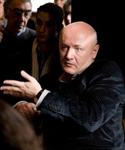 Will Straw
Will Straw
Will Straw (on Sabbatical for Winter 2017) is Professor in the Department of Art History and Communications Studies. His film-related interests include the relationship between cinema and urban life. He has written recently on “single-night narratives”: films that take place in the course of one night. His other interests include film extras and cinematic crowds, the cultures of gossip and celebrity surrounding cinema and global versions of film noir. He is currently co-editing, with Janine Marchessault, the Oxford Handbook of Canadian Cinema. For more information on Will Straw’s publications and research interests, visit his website willstraw.com.
 Alanna Thain
Alanna Thain
Professor Alanna Thain: I teach film and cultural studies in the department of English. My work focuses on the philosophy of movement and bodies in cinema, as well as theories of affect and the image. My publications include work on David Lynch, South African animator and artist William Kentridge, Québecois filmmaker Denis Villeneuve, cinematic elevators, contemporary screendance and intermedial dance performance, post-cinematic practices and biotechnological bodies in science fiction TV.
My current book projects include “Suspended Reanimations”, a study of bodies, double and affect in cinema through the philosophy of Gilles Deleuze, and “An Experimental Night”, on dance and screen and media in live dance performance. I also work on questions of the creative intersections of art and philosophy, as an editor of Inflexions: A Journal for Research-Creation. At McGill, I am a member of the Project on European Cinemas and the Moving image Research Laboratory.
My teaching interests include the encounter between theory and practice in small, experimental production classes, as well as courses on David Lynch, the French New Wave (then and now), Canadian Cinema, Affect and the Image, Cinematic Bodies, documentary film, Film Noir and Neo-Noir, animation, film and feminism and cinematic politics.
 Ipek Tureli
Ipek Tureli
Ipek Türeli is Assistant Professor at the School of Architecture. Her work lies at the intersection of visual culture, comparative urbanism, and architectural history. She has published on visualizations of the city in mass media-in photography, cinema, exhibitions, theme parks and museums-as well as the production and circulation of these media in the city.
Dr. Türeli uses cinema and documentary films as an integral part of teaching: Students engage cinema films as visual representations and cultural artefacts constitutive of the urban experience; they also get the opportunity to produce short digital films that use ethnographic methods and explore spatial stories from a user perspective—in courses such as Arch 684 Contemporary Theory I: “New Architectures of Spatial Justice,” Arch 566 Cultural Landscapes: “Miniature Worlds."
Xinyu Dong 
Xinyu Dong is assistant professor in the department of East Asian Studies. Her research explores the intersection between film history, media aesthetics and modern Chinese culture. Her book, The Comic Avant-garde: A Forgotten History of Chinese Cinema and Interwar Modernism (forthcoming 2020, Columbia University Press), looks at Chinese vanguard filmmakers' experiments with silent and early sound comedies in the 1920s and 1930s. She has published in MCLC, The Opera Quarterly, and co-edited with Jonathan Rosenbaum a special issue on comedy for the Journal of Chinese Cinemas (Vol. 12, No. 2, 2018). She has taught courses on introduction to film history, approaches to Chinese Cinema, topics in Chinese cinema and will offer courses on East Asian film genres and new wave cinemas.